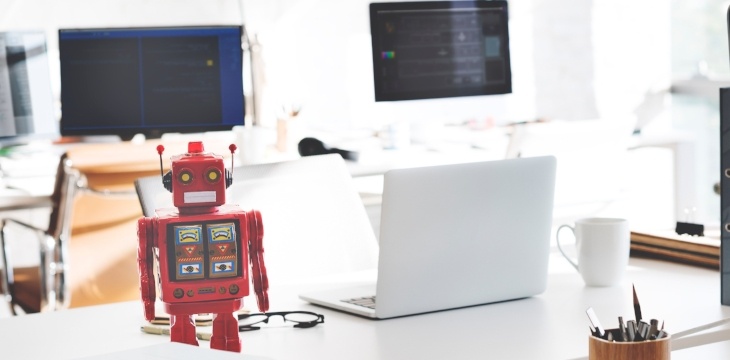Our Work Reimagined summit took place on 5 November, with over 30 speakers and panel members, and 150 attendees.
This blog series will examine the themes that ran through the summit, via the responses from different members of the Nimbus Ninety team. Below is the penultimate response: from Holly, our Membership Development Manager.
Capability
After lunch, I attended the “capability” stream. It featured the Director of IT at Edwardian Hotels, Michael Mrini; the Head of Operations at Airtasker, Tom Miller; and a Postdoctoral Researcher at the Leverhulme Centre for the Future of Intelligence, Karina Vold.
We were challenged to consider the effect technology has on the workforce.
AI in your workforce
The stream started with Michael Mrini. He told us how he implemented AI into the Radisson and Mayfair hotel chains. There were two threads to this: first, making processes slick to improve output. Housekeeping, once reliant on printed (and thus, out-of-date) paper lists, became more efficient as they received real-time data updates on mobile devices. Overall, Michael and his team created over 30 unique mobile apps – one per department – to streamline processes.
The second was the transformation of the customer experience. This came by accident: the IT team failed to insert a “do not reply” message in automated booking texts sent to guests, who began replying. At first, the IT team struggled to manually respond to texts they hadn’t anticipated; then, they created Edward the AI butler, an SMS-based chatbot which could relay messages to different teams.
Edward improved customer reviews with his efficiency and speedy responses without losing the human touch. Many guests believed that he was human – one even left him flowers!
AI in your career
Tom Miller, from Airtasker, tackled the effect of AI on the UK’s workforce. Tom argued that in the next two decades, AI is predicted to cause the loss of 7 million jobs and create 7.2 million. Which left him, overall, optimistic.
The loss of a job for life is a sign of this change: data scientists made redundant by AI now use the AI tools, and work as AI experts. Humans, Tom argued, must iterate their careers. Tom had transitioned from an accountant to Head of Operations. Continuous change will force greater adaptability and a wider skill sets from individual employees.
Tom viewed the transitional problems – finding new jobs, learning new skills, proving competency without experience – as Airtasker’s to solve. Some of their tools answer these questions; others remain open. We are still in a period of transition, but there are opportunities in this new job market.
AI in your brain
Karina Vold argued that the mind extends beyond the skull. Contrary to views which suggest that technology makes us dumb, she incorporated smart tech into an overall understanding of our mental “capability”.
This is not new. We can no longer remember information that we can access easily; but the seminal blow may have been the invention of paper to store information (to which Socrates objected, thinking it would make contemporary Greeks dumber). Instead, we remember how to access that information. We know how long the charge on our battery will last, the passcode to get in and where our phone is. The technology we use is reshaping and redesigning tasks.
It was refreshing to hear a positive take on the future of AI. Karina believes that humans will always stay in the loop: we have embedded emotional intelligence, so we can process types of information which rely on empathy better and faster than AI. In the same way trainers allow us to run further and for longer whilst reducing the risk of injury, artificial intelligence can make us think harder and longer.
The work of Michael and Tom supports this view. The apps created by Edwardian Hotels augmented their staff’s thinking: no need to memorise facts and figures which are being stored elsewhere. Tasks are changing: our overall organisation output will increase as AI-suited work goes automated and we focus on bigger and better things. We have the capability to learn multiple new skills and switch careers in a way we weren’t able to before.




Leave a Comment